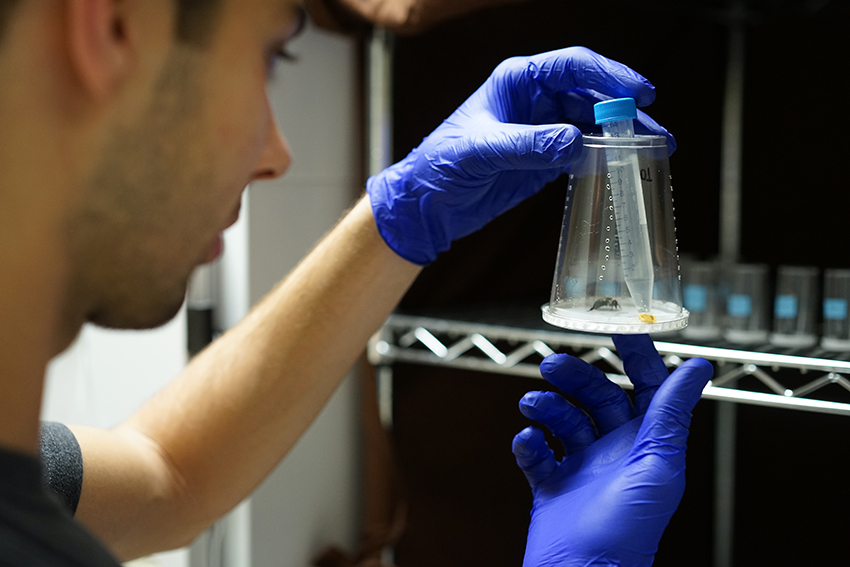Cancer Institute grants $8.5 million to UT to further research
October 1, 2022
The Cancer Prevention and Research Institute of Texas awarded a grant of approximately $8.5 million to UT on Sept. 14.
Half of the grant money went towards recruiting Ku-Lung Hsu, a chemistry, pharmacology and biological physics professor from the University of Virginia, to UT. Hsu will begin teaching in spring 2023. Four University professors received the other half of the grant, including chemical engineering professor Jennifer Maynard and Walter Fast, a chemical biology and medicinal chemistry professor.
The Maynard lab, led by Jennifer Maynard, received $3.9 million, which will go toward new equipment, such as a flow cytometer, that allows the researchers to isolate and study millions of cells individually.
Maynard said her lab pioneers in using cancer cells’ unique pH level to aid in antibodies search and destruction of them.
“We’re really good at making antibodies, and we know how to manufacture them and how to have them be stable, so they’ll actually work as therapeutic,” Maynard said. “There are not many cancer doctors or researchers in Texas who know how to do that.”
Maynard said the lab hopes to expand their partnership with doctors across Texas who can connect this with actual treatments on patients.
Fast said his $250,000 grant will go toward graduate students who focus on translating Fast’s work into a usable drug. His lab discovered a new way for molecules to bind to specific cancer-promoting proteins, and the students will shape the molecules’ properties into a drug available for treatment, Fast said.
“It takes many years and a ton of money to develop a molecule into a drug,” Fast said. “Our goal is to take the very first steps on this journey and to develop new strategies that can be used more widely when developing drugs to beat cancer.”
Hsu, who graduated from the University in 2008, said returning here feels like coming home. He said he will use most of the donation to establish his lab in his refound “home,” including the lab’s mass spectrograph, which the researchers will utilize to study protein and molecule bonds across hundreds of cells and test molecules and their effects on biological systems. He said he expects the students’ research publications to aid in discovering new therapeutics in cancer.
“I tell my students, ‘What other job can you have where your doings could be the first time that’s ever been done?’ The impact of all that work could be new therapies or new medicines,” Hsu said. “You can really make a difference in society. That’s why we do it.”












